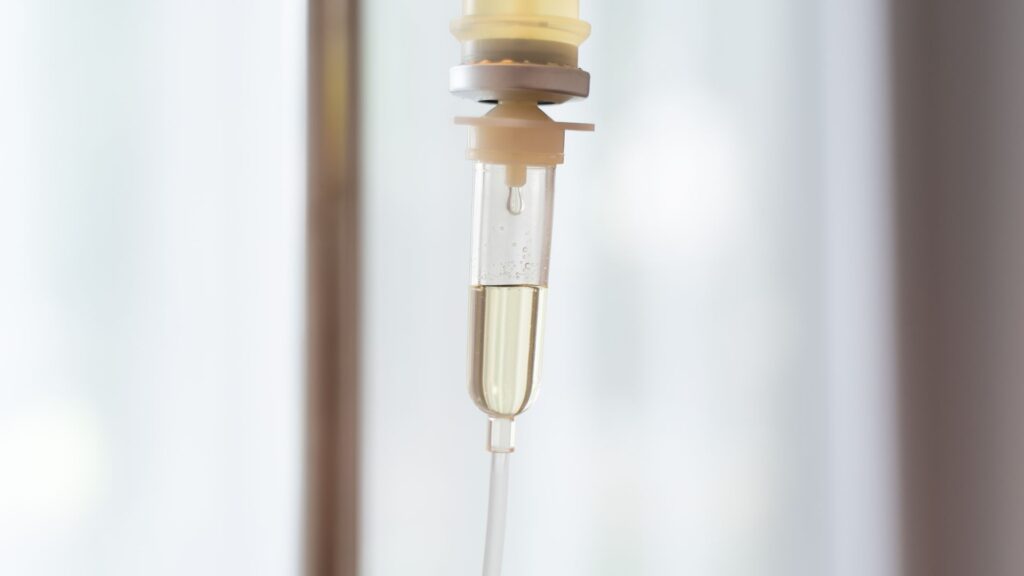Hydrogen peroxide therapy is an alternative wellness approach that has drawn attention for its potential role in oxidative medicine and integrative care. This therapy is now being explored for its possible effects on cancer cells, immune response, and overall wellness support.
In this article, we will explain what’s the essence of this therapy, how it works, its relationship to cancer research, and what you should know before considering it.

Understanding Hydrogen Peroxide Therapy
Hydrogen peroxide (H2O2) is a compound made of hydrogen and oxygen that the body naturally produces in small amounts as part of normal metabolism and immune defense. In a therapeutic setting, a highly diluted, medical‑grade solution may be introduced intravenously under supervision. Once in the bloodstream, it breaks down into oxygen and water.
Because the process involves IV delivery, it is sometimes grouped with other infusion‑based treatments such as vitamin drips and oxidative therapies. In wellness settings, it is offered as one option among broader IV services aimed at supporting balance, energy, and general health.
How the Therapy Works
Sessions typically take place in a supervised setting while a slow IV drip is administered over the course of 45 to 90 minutes. A small catheter is placed into a vein, and the dilute solution is delivered steadily through the drip line. As the infusion circulates, H2O2 breaks down into oxygen and water. This gradual release is thought to help oxygen reach tissues more effectively, though research is still ongoing.
Practitioners monitor blood pressure, comfort level, and drip rate to maintain safety. Reported sensations vary and may include mild tingling or cooling in the arm, though not all clients experience this. Because details can vary depending on provider and protocol, administration practices should always be confirmed with a licensed professional.
Research on Hydrogen Peroxide Therapy and Cancer
The connection between hydrogen peroxide and cancer treatment has been examined mainly in laboratory and small clinical settings. Findings suggest that this chemical compound may kill cancer cells’ structure while sparing normal cells in some cases. Early investigations have focused on conditions such as breast, pancreatic, and prostate cancer, though results are still limited and not conclusive.
The use of this procedure is not yet recognized as an established treatment, and it has not been proven effective for conditions. Because of these limitations, experts caution that it should only be considered within controlled research settings.

Potential Benefits and Limitations
Hydrogen peroxide therapy has been suggested to increase oxygen availability in tissues and support immune responses. Some individuals describe temporary improvements in energy, alertness, circulation, or overall wellness following supervised sessions. In integrative settings, it is sometimes explored as a supportive option for detoxification, reducing fatigue, and enhancing general vitality, though scientific findings remain limited.
Potential benefits also include its proposed role in stimulating antioxidant pathways and supporting the body’s natural defense mechanisms.
Outcomes can differ depending on dosage, delivery method, and overall health. When misused, this chemical compound can harm healthy tissues or cause unwanted side effects such as vein irritation, nausea, or oxidative stress.
Safety Considerations
Because hydrogen peroxide is a reactive compound, improper use can pose risks. High concentrations may damage healthy tissues, and even diluted forms can be harmful without medical oversight. Potential side effects may include vein irritation, nausea, dizziness, or oxidative stress. Licensed professionals use sterile equipment, carefully measured doses, and patient monitoring to reduce these risks.
Hydrogen peroxide therapy remains experimental and should not be considered a substitute for conventional medical treatments. Some laboratory studies on mammalian cells suggest potential effects, but large human trials are lacking. A clinical trial using H2O2 has not produced conclusive results, and the American Cancer Society and National Cancer Institute continue to note the absence of strong evidence. More research is required to clarify long‑term safety, standardized protocols, and their place in wellness or integrative care.
Final Thoughts from Quantum Wellness Center
Hydrogen peroxide therapy represents an evolving area of integrative medicine, with studies exploring its ability to influence oxygen delivery, immune activity, and cellular balance. While some research connects it to cancer treatment support, its applications extend more broadly, and findings remain preliminary.
At Quantum Wellness Center, we provide access to a range of advanced wellness therapies, including IV vitamin treatments and oxidative support. Our team of licensed professionals ensures therapies are administered safely and with attention to individual needs. By combining innovative approaches with personalized care, we aim to support your journey toward balanced health and well-being.



